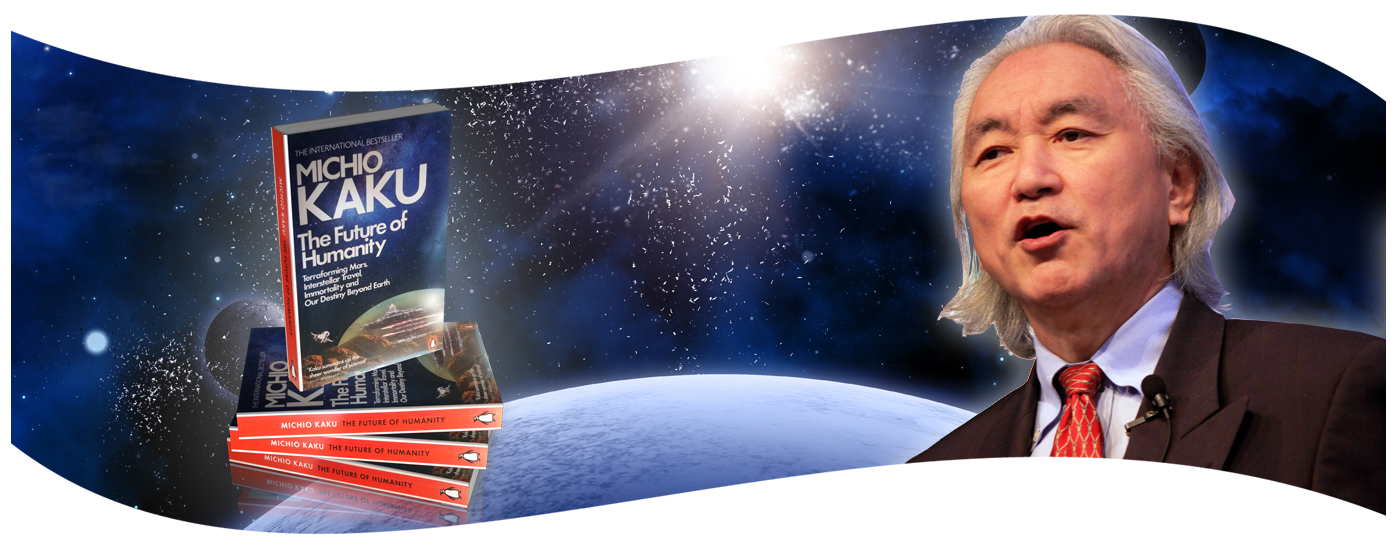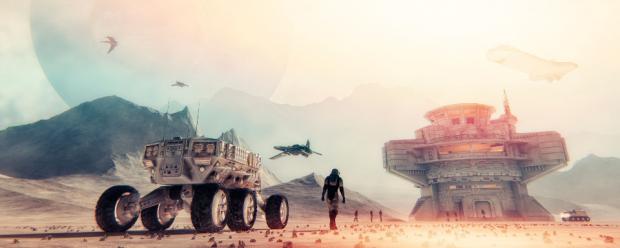Monthly Reading: The Future of Humanity Michio Kaku | Andrew Gibson

Michio Kaku (born January 24, 1947) is an American theoretical physicist and futurist, who makes a concerted effort to popularize science. He is a professor of theoretical physics in the City College of New York. He has written several books about physics and related topics and frequently appears on radio and television.
In his latest book, “The Future of Humanity”, Michio Kaku delivers a message of cautious optimism about the future of the human race. This is a non-fiction book, in which Kaku envisages a future in which climate disaster is averted by moving heavy industry into space, and spreading humanity out across the solar system. This allows the Earth to recover and be treated as a giant wildlife park and holiday destination.
In the early part of the book, Michio makes a convincing case that, in order to survive as a species, humans must become a space-faring race. Every chapter of the book starts with a powerful quote from an expert in the field the chapter is discussing. For example, the introduction to the book starts with the following quote:
“The dinosaurs became extinct because they didn’t have a space program. And if we become extinct because we don’t have a space program, it’ll serve us right."
-Larry Niven

Throughout the book, Kaku uses his impressive knowledge of physics to speculate on where we might get to in the near and very distant future. The book covers inter-planetary travel and terraforming other planets, in and beyond our own solar system. He discusses in detail the future of planet Earth before moving forward in time to the future of our Solar System, our Galaxy and even the Universe.
In the final chapters of the book, he discusses how an advanced Type IV civilization might conceivably survive the Big Crunch as our universe collapses. Kaku explains how we can apply string theory to the notion of a multiverse and the possibility of leaving this universe for another younger one:
“...we live in a multiverse of bubble universes, These bubble universes, in turn, are floating in a much larger arena, a ten-dimensional hyperspace, which has no beginning. So Genesis is happening all the time within the larger arena of Nirvana (hyperspace). This then gives us a simple and elegant unification of the Judeo/Christian origin story with Buddhism. Our universe did, in fact, have a fiery beginning, but we coexist in a timeless Nirvana of parallel universes.”
Kaku has a very clear and simple writing style and this utterly fascinating book is written in a way that is very easy to understand. The author mixes science with science fiction from popular culture, in order to provide a convincing case for what could or couldn’t happen in the future. Kaku’s exuberant love of science is evident throughout. All of this is written in a highly accessible writing style that doesn't require any special scientific knowledge to understand. If you have even a slight interest in where we are heading as a species, then this book should be on your reading list...






